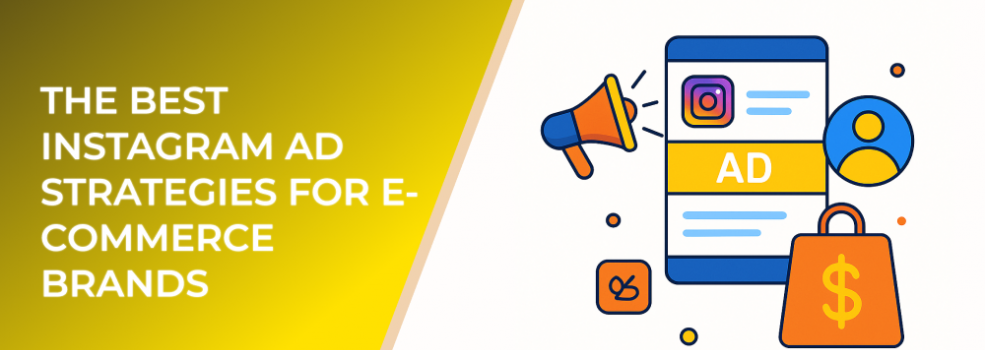Instagram is no longer just a place for pretty pictures. Over 90% of Instagram users follow at least one business account, and more than 50% of users report becoming more interested in a brand after seeing it on Instagram. For small businesses, this platform represents a powerful channel to build trust, showcase products, and generate sales—all with a visual-first approach that’s perfect for mobile.
But turning followers into customers requires more than boosting a post. You need strategy, structure, and clear creative direction.
Step 1: Define your campaign goal
Are you looking for sales, leads, or website visits? Choosing the right campaign objective ensures the algorithm delivers results that match your actual goal. Businesses that match objectives to KPIs often see 20–30% lower costs per result than those who don’t.
Step 2: Use the Meta Pixel and Conversions API
Without tracking, you’re advertising blind. Installing the Pixel and setting up the Conversions API gives you accurate conversion data. Brands with proper tracking in place often see 10–20% higher attributed ROAS and more consistent optimization.
Step 3: Create audiences that actually convert
-
Core audience: Interests, demographics, and behaviors aligned with your customer.
-
Lookalike audience: Based on existing customers or engaged followers.
-
Retargeting audience: People who visited your website, watched your videos, or interacted with your Instagram account.
Useful stat: Retargeting audiences usually convert 20–50% cheaper than cold audiences, making them critical for small budgets.
Step 4: Craft thumb-stopping creatives
Instagram is visual-first. Focus on:
-
High-contrast images or bold colors.
-
Short, vertical videos (15–30 seconds).
-
Clear demonstration of product or service in use.
-
Authentic customer stories (UGC style).
User-generated content often lowers CPAs by 15–35% compared to overly polished ads.
Step 5: Write captions that sell
The caption is where you connect emotionally. Use this structure:
-
Hook: a relatable problem or question.
-
Value: what your product solves.
-
CTA: direct instruction (Shop now, Sign up today, Learn more).
Ads with direct CTAs see 20% higher click-through rates than those without.
Step 6: Optimize placements for Instagram
Select Instagram-specific placements such as:
-
Feed
-
Stories
-
Reels
-
Explore
Stories and Reels often outperform static feed placements for small businesses because they mimic organic content and blend with user behavior. Reels ads, in particular, can deliver lower CPMs by 10–25%.
Step 7: Start with the right budget
A good rule of thumb: 3–5× your target cost per conversion per day. If your goal is a $15 lead, start with at least $45/day across ad sets. Scaling slowly (+15–20% every few days) prevents algorithm resets and keeps CPAs stable.
Step 8: Measure the right metrics
Don’t just chase likes or impressions. Track:
-
CTR (link): aim for 0.8–1.5%.
-
Conversion rate: at least 10–20% for lead gen forms, 2–5% for e-commerce.
-
CPA (Cost per acquisition).
-
ROAS (Return on ad spend).
Following data instead of vanity metrics helps you adjust before wasting budget.
Step 9: Build a retargeting funnel
Retargeting should cover:
-
Website visitors in the last 30 days.
-
Instagram engagers (likers, commenters, savers).
-
Video viewers (50%+ watch time).
These warm audiences can bring back users who were close to converting but needed a reminder.
Step 10: Refresh creatives every 2–3 weeks
Ad fatigue is real. Engagement and CTRs often drop after 2–3 weeks of running the same creative. Refreshing visuals and testing new formats helps maintain healthy performance.
Useful statistics at a glance
-
90%+ of Instagram users follow a business account.
-
50% of users show higher brand interest after seeing Instagram ads.
-
Retargeting reduces acquisition costs by 20–50%.
-
UGC-style creatives cut CPAs by 15–35%.
-
Ads with clear CTAs drive 20% more clicks.
-
Reels ads can reduce CPMs by 10–25%.
Where to go next on LeadEnforce
Want to strengthen your Instagram strategy further? Read these articles:
-
How to Define a Target Audience for Marketing: a Step-by-Step Guide — sharpen your customer profiles.
-
Facebook Ad Targeting 101: How to Reach the Right Audience — apply these insights to Instagram campaigns.
-
Meta Ad Campaign Objectives Explained: How to Choose the Right One — avoid mismatched goals and wasted spend.
Final word
For small businesses, Instagram ads can be the bridge between engagement and revenue. By combining strong creatives, accurate tracking, and smart retargeting, you can turn followers into paying customers without burning your budget. Start with this framework, test carefully, and scale what works.

